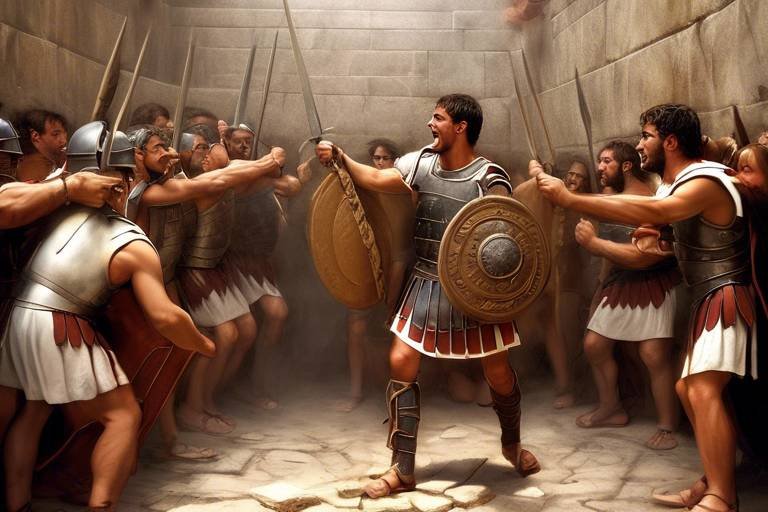The Mystery of the Ancient Greeks' Understanding of Ethics
The ancient Greeks' exploration of ethics is a captivating journey into the moral fabric of their society. Delving into the philosophical musings of esteemed thinkers like Socrates, Plato, and Aristotle reveals a rich tapestry of ethical theories that continue to influence modern ethical thought today.
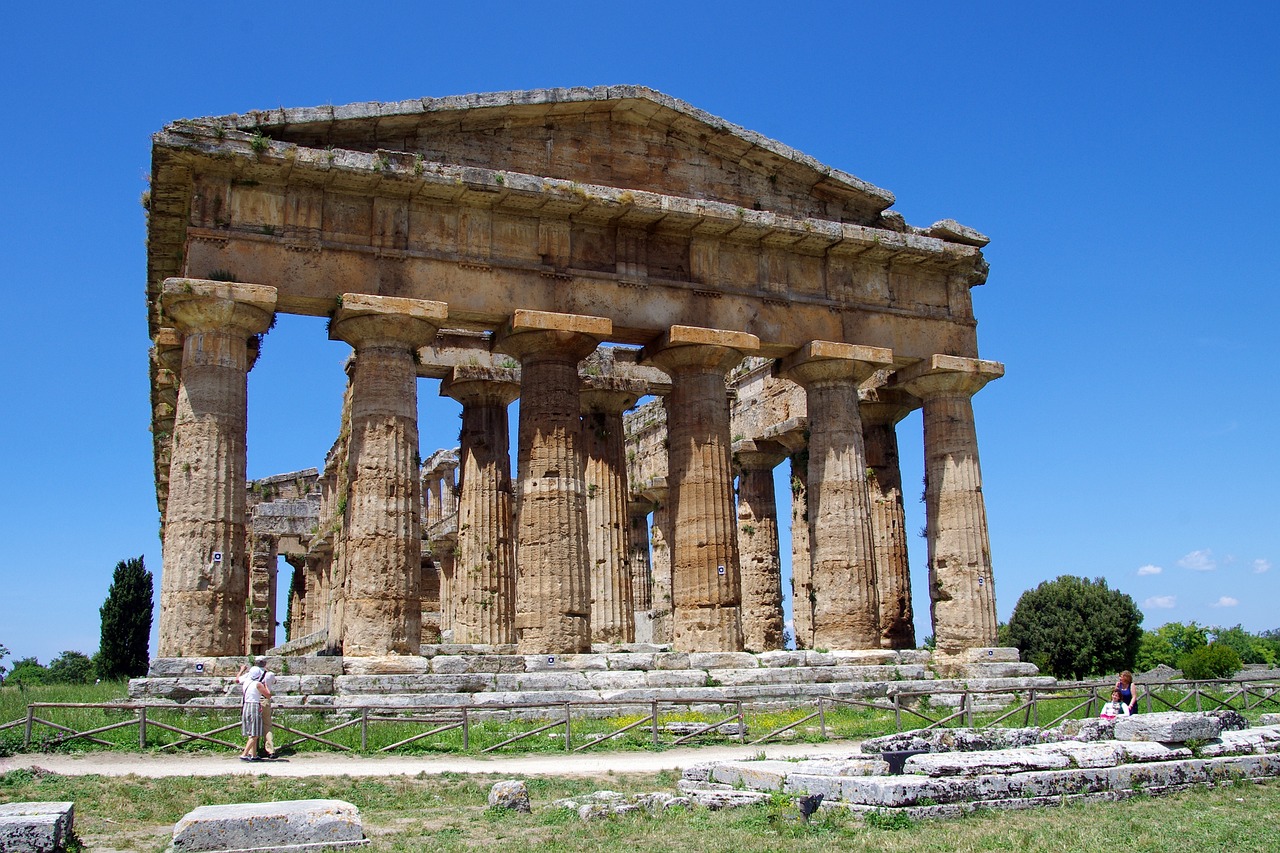
Ancient Greek Philosophers' Views on Ethics
Ancient Greek philosophers have long been revered for their profound insights into ethics and morality. The ethical theories put forth by iconic figures like Socrates, Plato, and Aristotle continue to shape our understanding of right and wrong in the modern world. These philosophical giants delved deep into the complexities of human behavior and the nature of virtue, leaving behind a legacy that still resonates today.
When we peer into the annals of ancient Greek philosophy, we encounter a rich tapestry of ethical thought woven by luminaries of the past. Socrates, with his relentless pursuit of truth and self-examination, laid the groundwork for ethical inquiry. Plato, his esteemed disciple, expounded on the concept of the ideal state and the intrinsic connection between ethics and knowledge. Aristotle, the polymath, emphasized the cultivation of virtues such as courage, wisdom, and justice as the cornerstone of ethical living.

Ethical Concepts in Greek Mythology
Ancient Greek philosophers have long been revered for their profound insights into ethics and morality. From the teachings of Socrates to the dialogues of Plato and the ethical treatises of Aristotle, their perspectives have left an indelible mark on the development of ethical thought. In this article, we delve into the rich tapestry of ethical concepts that defined ancient Greek civilization and explore their enduring relevance in modern society.
Within the realm of Greek mythology, ethical dilemmas and moral lessons were intricately woven into the fabric of epic tales and legends. The stories of gods and heroes served as allegorical reflections of human behavior, presenting complex ethical quandaries for contemplation. For instance, the myth of Prometheus stealing fire from the gods raises questions about the boundaries of moral agency and the consequences of defying divine authority.
Furthermore, the tragic fate of Oedipus in Sophocles' play "Oedipus Rex" serves as a cautionary tale about the perils of hubris and the inexorable workings of fate. These narratives not only entertained ancient audiences but also provided moral guidance and philosophical insights, illustrating the intricate interplay between ethics, destiny, and free will in Greek culture.

The Role of Virtue in Greek Ethics
Exploring the ethical landscape of ancient Greece unveils a rich tapestry of philosophical insights, mythical narratives, and societal norms that continue to influence our modern understanding of ethics. The ancient Greek civilization, renowned for its intellectual prowess and cultural sophistication, delved deep into questions of morality, virtue, and the nature of right and wrong. Let's embark on a journey to unravel the intricate web of ethical thought that defined the ethos of the ancient Greeks.
Central to the ethical framework of ancient Greece was the concept of virtue, embodying qualities that were deemed essential for leading a good and fulfilling life. Virtues such as courage, wisdom, temperance, and justice were not merely abstract ideals but practical guidelines for ethical conduct and personal excellence.
Aristotle, one of the most influential Greek philosophers, emphasized the importance of cultivating virtues as a means to achieve eudaimonia, or human flourishing. He believed that practicing virtues would lead individuals to live a life of moral integrity and inner harmony, contributing to the well-being of the individual and society as a whole.
Imagine virtues as the guiding stars that navigate the moral compass of an individual, steering them towards actions that are noble, honorable, and in alignment with the greater good. In the tapestry of Greek ethics, virtues were not just theoretical concepts but lived principles that shaped the character and conduct of individuals within the community.
Furthermore, the Greek notion of virtue extended beyond personal ethics to encompass the ideal of the virtuous citizen. In the city-states of ancient Greece, virtues like courage and justice were not only individual traits but also civic virtues that formed the foundation of a just and harmonious society.
Through the cultivation of virtues, the ancient Greeks sought to elevate humanity above base desires and impulses, striving towards a higher moral ideal that transcended the mundane concerns of everyday life. Virtue, therefore, was not just a means to an end but a noble pursuit in itself, reflecting the aspiration for excellence and moral goodness that defined Greek ethical thought.
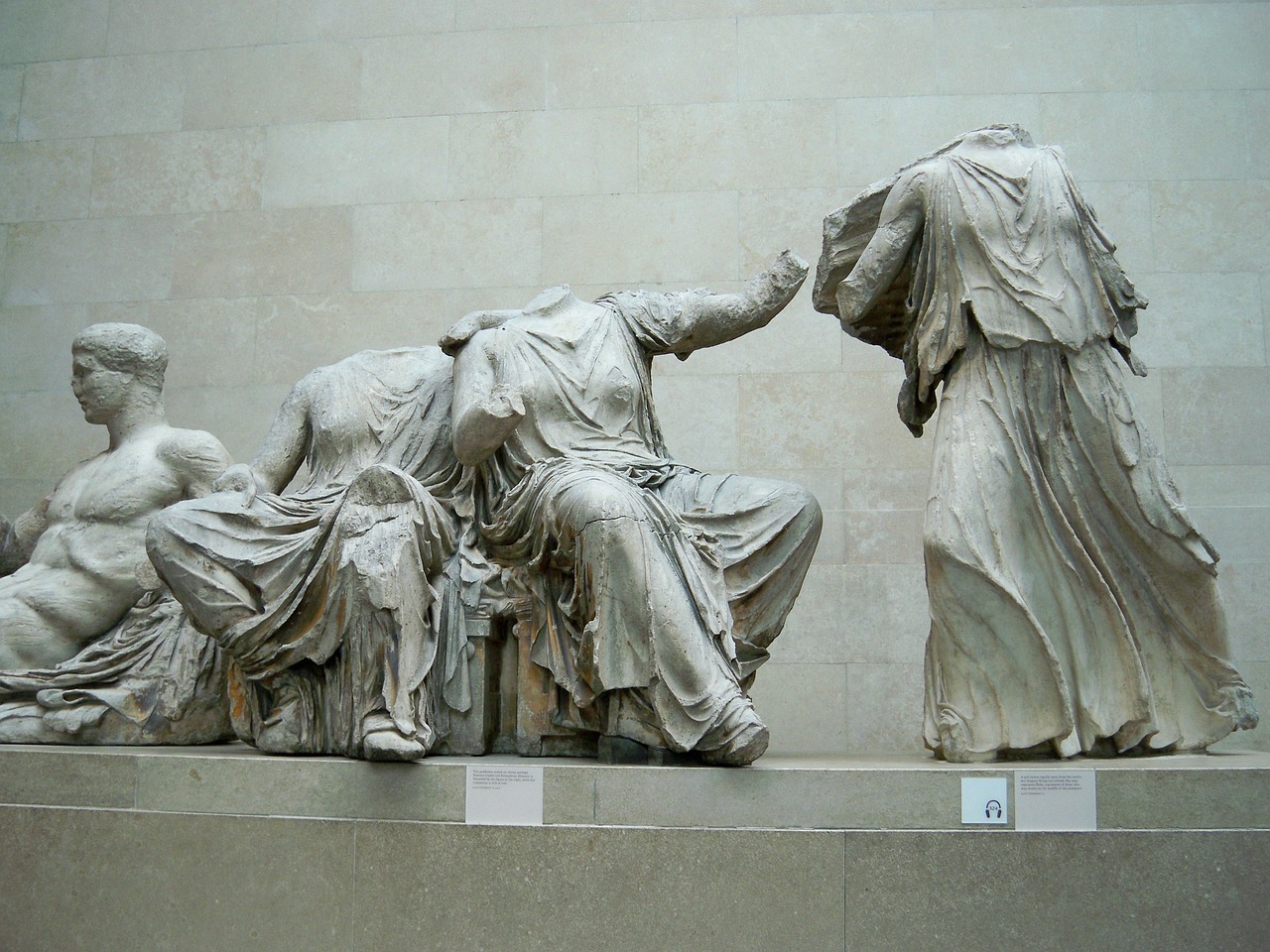
Ethics in Ancient Greek Society
In ancient Greek society, ethics played a fundamental role in shaping the behavior and interactions of individuals within the community. The concept of ethics, known as 'ethos' in Greek, encompassed a set of moral principles that guided personal conduct and societal norms. These ethical norms were deeply ingrained in the fabric of Greek society, influencing various aspects of life ranging from politics and governance to everyday social interactions.
One of the central ethical principles in ancient Greek society was the importance of **virtue**. Virtues such as **courage**, **wisdom**, and **justice** were highly valued and considered essential qualities for individuals to possess. These virtues were not only admired but also expected to be practiced in both personal and public life, reflecting the emphasis placed on moral excellence and integrity.
Furthermore, ethical behavior in ancient Greek society was closely linked to the concept of **arete**, which encompassed the idea of **excellence** and **fulfilling one's potential**. Individuals were encouraged to strive for excellence in all aspects of life, whether in intellectual pursuits, physical endeavors, or moral conduct. This pursuit of arete was seen as a pathway to personal fulfillment and societal harmony.
Moreover, ethical norms in ancient Greek society were not solely based on individual actions but also extended to the collective well-being of the community. Concepts such as **philanthropia**, meaning **love for humanity**, underscored the importance of **altruism** and **social responsibility**. Acts of kindness, generosity, and civic engagement were highly regarded and considered integral to maintaining a harmonious and ethical society.
It is fascinating to delve into the ethical landscape of ancient Greek society and explore how these foundational principles continue to resonate in contemporary ethical discourse. The legacy of Greek ethics serves as a timeless reminder of the enduring value of virtues, moral excellence, and communal well-being in shaping a just and ethical society.
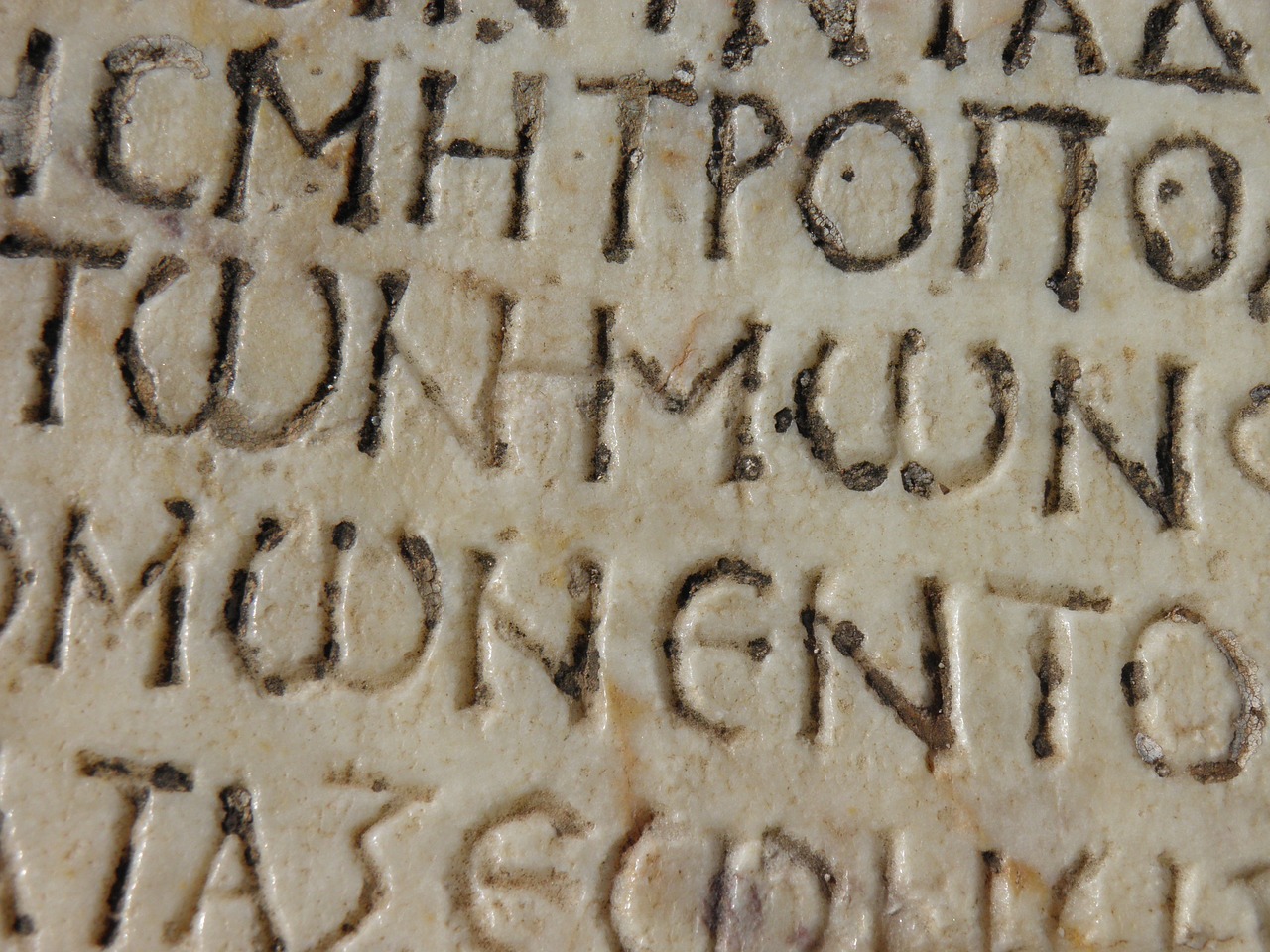
The Influence of Religion on Greek Ethics
The ancient Greeks held a deep reverence for their pantheon of gods and goddesses, with religion playing a significant role in shaping their ethical beliefs and behaviors. The gods were not only seen as powerful beings but also as moral exemplars, embodying virtues and vices that served as guiding principles for human conduct. For example, Zeus, the king of the gods, represented justice and order, while Ares symbolized the chaotic and destructive aspects of war.
Religious rituals and ceremonies were integral to Greek society, providing a moral and ethical framework for individuals to follow. The concept of divine justice, where actions were believed to be observed and judged by the gods, instilled a sense of accountability and responsibility in adhering to ethical standards. This belief in divine oversight acted as a deterrent against immoral behavior and encouraged adherence to ethical norms.
Moreover, the myths and stories of Greek mythology often conveyed moral lessons and ethical dilemmas, illustrating the consequences of hubris, greed, or betrayal. These narratives served as cautionary tales, warning individuals about the pitfalls of straying from virtuous behavior and the importance of upholding ethical principles in both personal and societal contexts.
Despite the influence of religion on Greek ethics, there were also philosophical discussions that challenged traditional beliefs and sought to rationalize ethical principles through reason and critical inquiry. Thinkers like Socrates questioned the role of divine command in determining right and wrong, advocating for a more introspective and self-reflective approach to ethics.
In conclusion, the influence of religion on Greek ethics was profound, shaping the moral landscape of ancient Greek society and providing a foundation for ethical thought and behavior. The interplay between religious beliefs, moral teachings, and philosophical inquiry contributed to a rich tapestry of ethical discourse that continues to resonate in modern ethical debates.

Ethical Education in Ancient Greece
When delving into the realm of ethical education in ancient Greece, we are transported to a time where the nurturing of moral character was considered a fundamental aspect of a person's development. In Greek city-states, such as Athens and Sparta, the concept of **paideia** encompassed not only academic learning but also the cultivation of virtues and ethical values.
Young Greeks were exposed to a holistic education system that aimed to instill in them a sense of **arete** - excellence in all aspects of life. This education was not just about acquiring knowledge but also about shaping one's character and behavior to align with ethical principles.
Central to ethical education in ancient Greece was the role of **philosophers** such as Socrates, Plato, and Aristotle. These thinkers emphasized the importance of self-reflection, critical thinking, and the pursuit of **eudaimonia** - a state of flourishing achieved through virtuous living.
**Gymnastics** and **music** played significant roles in the ethical education of young Greeks. While gymnastics focused on physical fitness and discipline, music was believed to cultivate the soul and harmonize the individual with the moral order of the universe.
Moreover, **dialogues** and **debates** were common in Greek educational settings, encouraging students to engage in discussions about moral dilemmas, ethical principles, and the nature of justice. This interactive approach to learning fostered intellectual growth and ethical awareness.
The **mentor-disciple** relationship was also crucial in ethical education. Mentors, known as **sophists**, guided students in the path of ethical reasoning and moral conduct, imparting not only knowledge but also wisdom and ethical guidance.
Through a combination of intellectual inquiry, physical training, artistic expression, and ethical guidance, the ethical education system in ancient Greece aimed to nurture individuals who were not only knowledgeable but also virtuous, contributing members of society.

Ethical Controversies in Ancient Greece
Ancient Greek philosophers have long been revered for their profound insights into ethics and morality. From the teachings of Socrates, Plato, and Aristotle to the ethical dilemmas portrayed in Greek mythology, the ancient Greeks laid the foundation for modern ethical thought.
One of the most intriguing aspects of ethics in ancient Greece was the presence of ethical controversies among prominent thinkers. These debates often revolved around fundamental questions of morality and virtue, sparking intellectual discourse and challenging societal norms. For example, the conflict between the Sophists and traditional philosophers like Socrates raised questions about the nature of virtue and the pursuit of knowledge.
Furthermore, the concept of relativism versus absolutism in ethics was a recurring theme in ancient Greek philosophical discussions. While some philosophers argued for universal moral principles, others believed that ethics were subjective and context-dependent. These contrasting viewpoints led to heated debates and differing interpretations of ethical behavior.
Moreover, ethical controversies in ancient Greece were not limited to theoretical debates but also extended to practical ethical dilemmas faced by individuals in society. Issues such as the role of emotions in ethical decision-making, the nature of justice, and the relationship between ethics and politics were subjects of intense scrutiny and disagreement among Greek thinkers.
Despite the disagreements and controversies, these ethical debates were essential in shaping the ethical landscape of ancient Greece and paved the way for the development of diverse ethical theories and perspectives. The willingness of Greek philosophers to engage in intellectual discourse and challenge prevailing beliefs contributed to the richness and complexity of ethical thought in ancient Greek society.
If you have any questions or queries regarding the ancient Greeks' understanding of ethics, check out our FAQ section below:
- Q: What were the main ethical virtues emphasized by ancient Greek philosophers?
- A: Ancient Greek philosophers highlighted virtues such as courage, wisdom, temperance, and justice as essential components of ethical character.
- Q: How did Greek mythology influence ethical beliefs in ancient Greece?
- A: Greek myths and stories conveyed moral lessons and ethical dilemmas, providing a cultural framework for understanding right and wrong.
- Q: What role did religion play in shaping Greek ethics?
- A: Religious beliefs, particularly in relation to the Greek gods, influenced ethical behavior and societal norms in ancient Greece.
- Q: How has the legacy of Greek ethics influenced modern ethical discourse?
- A: The ethical theories and principles developed by ancient Greek philosophers continue to impact contemporary moral philosophy and ethical debates.
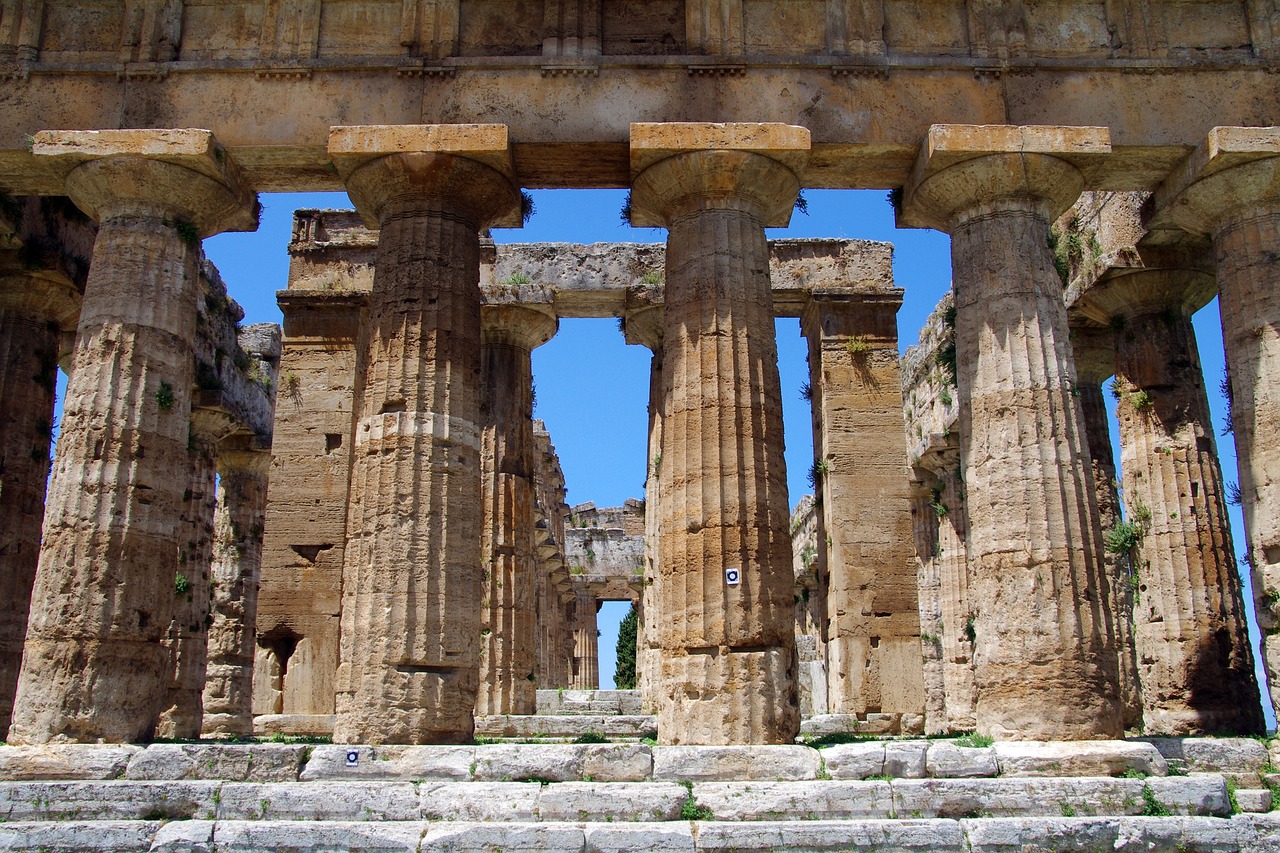
Legacy of Greek Ethics in Modern Society
Ancient Greek philosophers have long been revered for their profound insights into ethics and morality, laying the foundation for modern ethical thought. Let's delve into the ethical theories of prominent Greek philosophers like Socrates, Plato, and Aristotle and explore their enduring impact on contemporary ethical discourse.
From Socrates' emphasis on self-examination and questioning assumptions to Plato's theory of ideal forms and Aristotle's concept of the golden mean, ancient Greek philosophers offered diverse perspectives on ethics. Their teachings continue to shape ethical debates and guide moral reasoning in the present day.
Ancient Greek mythology was not merely a collection of fantastical tales but a repository of ethical dilemmas and moral lessons. Through myths and stories, Greeks conveyed complex ethical concepts, exploring themes of hubris, fate, and divine justice that still resonate with audiences today.
Virtue held a central place in the ethical framework of ancient Greek society, with values such as courage, wisdom, and justice revered as essential qualities for leading a good life. The Greeks believed that cultivating virtues was key to achieving eudaimonia, or flourishing, in both individual and communal contexts.
Ethical norms and values were deeply ingrained in the fabric of ancient Greek society, influencing social interactions, governance structures, and everyday conduct. Concepts of honor, reciprocity, and the pursuit of excellence permeated all aspects of Greek life, shaping the moral landscape of the civilization.
Religion played a significant role in shaping Greek ethical behavior, with beliefs in the pantheon of gods impacting moral decision-making and social conduct. The reverence for deities like Zeus, Athena, and Apollo instilled a sense of piety and accountability that guided individuals in their ethical choices.
The moral education of young Greeks was a paramount concern in ancient society, with philosophers and educators emphasizing the cultivation of ethical character through rigorous training and philosophical inquiry. Ethical teachings were integrated into various aspects of education, molding the ethical outlook of future generations.
Ancient Greece was a cauldron of intellectual debate and philosophical inquiry, leading to heated discussions and disagreements among thinkers regarding ethical principles and moral conduct. From the debate between Stoics and Epicureans to the clash of ideals between Sophists and traditionalists, ethical controversies were rife in Greek intellectual circles.
The legacy of ancient Greek ethics continues to reverberate in modern society, influencing contemporary moral philosophy and ethical practices. Concepts such as virtue ethics, the pursuit of knowledge, and the quest for the good life remain foundational principles in ethical discourse, illustrating the enduring relevance of Greek thought in shaping our ethical landscape.
Frequently Asked Questions
- What were the main ethical principles of Ancient Greek philosophers?
Ancient Greek philosophers emphasized virtues such as wisdom, courage, temperance, and justice as the foundation of ethical behavior. They believed in the pursuit of knowledge and self-awareness to achieve moral excellence.
- How did Greek mythology contribute to ethical teachings?
Greek myths often presented moral dilemmas and lessons through the actions of gods, heroes, and mythical creatures. These stories served as allegories to convey ethical values and principles to the society.
- What role did virtue play in shaping Greek ethical beliefs?
Virtue, particularly the cultivation of moral character through the practice of virtues like courage, wisdom, and justice, was central to Greek ethical thought. Virtuous behavior was seen as essential for living a good and fulfilling life.
- How did ethical education take place in Ancient Greece?
In Ancient Greece, ethical education was a fundamental aspect of upbringing. Young Greeks were taught moral values, ethical principles, and the importance of virtues through various educational practices and philosophical teachings.
- What is the legacy of Greek ethics in modern society?
The ethical ideas and principles developed by Ancient Greek philosophers continue to influence contemporary moral philosophy and ethical discourse. Concepts such as justice, virtue ethics, and the pursuit of knowledge remain relevant in today's ethical debates.



